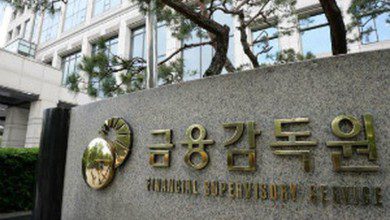
FSS: “Beware of ongoing cryptocurrency fraud schemes”
The Financial Supervisory Service (FSS) of South Korea yesterday issued a warning to citizens still engaging in cryptocurrency investing to beware of ongoing fraud schemes involving cryptocurrency.

The FSS reported that cryptocurrency-related fraud accounts for the largest share of fraud cases nationwide by coming in just shy of half at 49.5% of cases.
Although the total number of related reports of fraud fell to 482 from 889 reports between 2018 and 2019, the number of cases involving crypto wallets and direct payments remained fairly high. Additionally, many of the cases reportedly involved several companies working on the same scheme which adds considerable complication to the investigation process.
Established companies in various industries are suspected of committing fraud by simply adding cryptocurrency as one of their investment options. For example, Construction Company A may bamboozl investors by staging investment rounds that offer cryptocurrency as investments rather than real equity in the company. It is in this way that cryptocurrency fraud schemes are though to persevere.
The FSS added that cases of fraud related to companies that issue cryptocurrency falsely advertise that their cryptos are directly related to the business functions of the company. In reality, companies may have quickly developed an ERC-20 token based off of the Ethereum blockchain that then is used purely as a money-making scheme.
After listing their cryptocurrency on exchanges, companies can maintain a price point through continuous wash trading. The stable price point and somewhat reliable pumps entice investors to join in on the investment rounds. When investors try to cash out their coins, the issuing companies may claim system errors are delaying the process, or may exit the market completely.
Perverse Incentives
Usually complaints of fraud involve pyramid schemes, otherwise known as multi-level marketing, where investors are expected to find new investors to dump their coins on. In Korean society, pressure from elders and work superiors can be particularly strong. It is presumed that pyramid schemes proliferate widely and quickly due to this social hierarchy since it would be easy for a superior office worker to pressure an inferior to invest in the same cryptocurrency scam. What’s more, issuing companies may even offer incentives to the investors who find the most new members, making the schemes even harder to slow down.
According to the FSS, 70.4% of the implicated companies predominantly come from Seoul, with 34.4% of them concentrated in Gangnam alone. The average age of the 138 reported victims was 56. Losses amounted to an average of about $48k, which likely came from the middle-age victims’ sizable retirement funds.
FSS officials added words of caution to potential investors in cryptocurrency fraud schemes. “[If someone guarantees high profits, do not be deceived into issuing payments to them and immediately suspect fraud.]” The weight of those words cannot be understated since damages from cryptocurrency transactions cannot be recovered by the FSS dispute settlement procedures.
Coinup Case Study
Coinup was a cryptocurrency exchange in Korea accused of performing some of the fraudulent deeds outlined in the FSS report. It should serve as a cautionary case study for those unsure what a scam looks like.
Employees of Coinup, including the CEO himself personally contacted potential investors claiming that the value of some cryptocurrencies would increase significantly. They attracted their victims by suggesting that if they invested in specially packaged products, investors would see returns of up to 200% after 4 to 10 weeks. This might also be known as a ‘Pump and Dump’ scheme.

Investigations revealed that those claims misled investors to pilfer money from well-meaning victims. They used a multi-level marketing scheme to run a “blocking” approach that ensured the profits of those who invested earlier with money from those who later invested. This operation resulted in an overall negative return – it was a Ponzi scheme.
The CEO went as far as to fabricate photographs of himself with dignitaries and celebrities as in the above photograph with President Jaein Moon. This tactic is surprisingly common among the persisting crypto scams in Korea that target middle-aged investors.
The court found most of the implicated individuals guilty, however, some senior executives related to the case, who were in various lower or non-decision-making roles, were regarded as de facto accomplices and received lower sentences of fraud and related charges.
Telegram Chat (partner) – https://t.me/cryptodakurobinhooders
email – hello@thenews.asia
Bitcoin donations appreciated- 1EH7PHMt8rDD8eM8sarTpP7BaqVN8DVi7P




